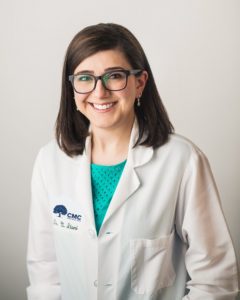Dr. Itani’s Guide to Cancer Screenings
 It’s an annual checklist every man and woman should have marked on their calendars: Yearly cancer screenings. However, there’s more to these screenings than meets the eye, and our own Dr. Najla Itani will take you through the process, providing useful information to help you get the most out of your visit.
It’s an annual checklist every man and woman should have marked on their calendars: Yearly cancer screenings. However, there’s more to these screenings than meets the eye, and our own Dr. Najla Itani will take you through the process, providing useful information to help you get the most out of your visit.
Dr. Itani is our oncologist for the Conway Medical Center Cancer Center. She specializes in both oncology and hematology and has a passion for connecting with her patients.
“We all hear about the importance of cancer screenings, but the impact of these exams goes far beyond mere cancer detection,” Dr. Itani said. “It’s an important chance to discuss and evaluate your risks and make any adjustments that are needed to help minimize your chances of developing cancer.
“One of the ways I explain this to patients is that early detection means early intervention, and with early detection we get a head start on controlling a situation that could potentially change your life. I want all our patients to feel that we are an extension of their family. We’re dedicated to providing the highest level of care in both the best of times and the worst of times. We’re companions with you throughout your entire health care journey—not just when you have a cancer screening,” she added.
The Benefits of Cancer Screenings
Did you know that cervical cancer used to be one of the major causes of cancer death of American women? This number was dramatically reduced when the Pap test was introduced. This test detects cervical cancer at its earliest stages when it’s easier to cure.
This is a perfect example of how cancer screenings save lives. However, what you should be screened for and how often depends upon many factors. We understand it can be confusing.
“For many years there has been a ‘one-size-fits-all’ approach to cancer screenings, and that’s not the case,” Dr. Itani said. “There are certain recommendations that should be followed, but these may need to be adjusted depending upon a variety of factors, such as family history and risk factors. An important part of my care philosophy is that everyone needs and deserves a tailored approach to cancer screenings and treatment.”
We’ve provided some information on cancer screenings that will help you understand the process and how often you may need to be screened.
Important Cancer Screenings
Breast Cancer Screenings
We recommend that women should have a mammogram, but how often will depend upon your overall risk factors for developing the disease.
Women who are 50 to 74 years old and who are at an average risk for breast cancer may only need a mammogram every two years. However, women under 50 should speak with us about how often they will need to be screened for breast cancer.
Typically, we recommend that these women have a screening mammogram every year. In many cases, family history and the results of previous mammograms can play a vital role in what screening is needed.
Cervical Cancer Screenings
A Pap smear should be conducted every year as a part of every woman’s physical examination.
Colorectal Cancer Screening
Those between 50 to 75 years old should be screened for colorectal cancer every year. However, depending upon your risk factors, you may need to start earlier. According to the Centers for Disease Control, most cases of colorectal cancer occur in those over 50.
Know Your Family’s Medical History
Knowing and understanding your family’s medical history is vital for understanding your risk for certain cancers.
“We will work closely with our patients to ensure they are receiving the screenings they need,” Dr. Itani said. “Education is a vital part of patient care. We don’t want to merely treat patients, we want them to understand symptoms to watch for and to bring these concerns to us immediately. We want you to ask questions. In so many cases, patient education is one of the best screening tools available.”
The Future of Cancer Screenings
New Screenings Are Being Developed
Cancer screenings are getting more sophisticated. That’s great news because this will help detect cancers for which no screenings currently exist. An example is pancreatic cancer. Currently, there’s no reliable screening for this disease.
The American Cancer Society said that by 2030, pancreatic cancer is poised to become the second leading cause of cancer-related death among women and men combined.
Dr. Itani emphasized that, in these cases, the best chance of early detection is to understand symptoms. This can be particularly challenging in the cases of certain cancers which may not show signs at their earliest stages.
Regarding the example above, the signs of pancreatic cancer include:
- Jaundice, which causes a yellowish appearance of the skin and eyes
- Dark urine
- Light-colored or greasy stools
- Itchy skin
- Back pain
- Unintended weight loss
- Nausea
- Vomiting
- An enlarged gallbladder or liver
However, because these can be caused by a variety of different disorders, it’s important to speak to your doctor for a thorough examination.
There’s an App for That
Did you know that even though colorectal cancer screenings reduce deaths, only two-thirds of Americans have them regularly?
In order to make screening as easy as possible, researchers conducted a study. Patients were given a computer tablet with an app that not only provided educational information, but it also allowed them to order their own screening test. The results? People who used the app were twice as likely to be screened, according to information from the National Cancer Institute.
Researchers want to implement the use of this app in communities across the country.
Our New Cancer Center Brings State-of-the-Art Care Close to Home
Conveniently located inside Conway Medical Center, our new Cancer Center offers extensive services in a relaxing, peaceful environment. A DukeHealth affiliate, it’s equipped to offer the latest treatments with state-of-the-art technology. Our center offers:
- Blood and platelet transfusions
- Blood draws
- Hydration therapy
- Injections
- Traditional intravenous chemotherapy infusions
“It’s a privilege to work with such an outstanding group of health care workers at such a beautiful, technologically advanced facility,” Dr. Itani said. “We truly treat our patients like members of our own family, because, after all, they are our neighbors and a part of this wonderful community in which we live.”
Learn more about our Cancer Center.
